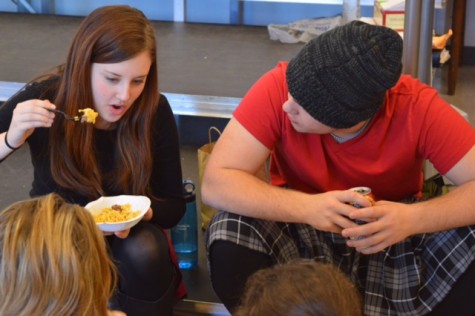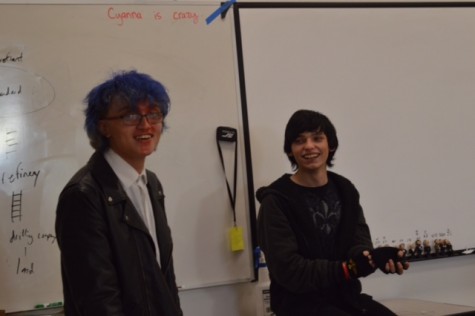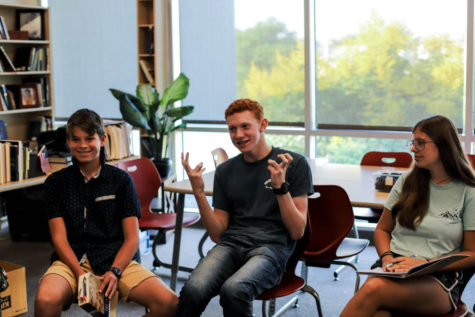Diplomacy: the Sinker of a Thousand Friendships

If life is a game, then life at CAHS is Diplomacy. Over the past few months, both students and faculty members have been playing this pre-World War I game, wherein players choose a European power to represent. The powers each have countries and provinces which contain supply centers that can generate one army per turn. People from each country try to form alliances and strategies so they can take over other armies and their supply centers. Students act as diplomats between countries in person, and then report to the leaders of their country (faculty members) with information they’ve obtained and strategies they’ve created. Taking into account the information the diplomats have given them, faculty members then write down their orders and give them to Mr. Segina, who makes moves on their behalf on an online map. Faculty members are permitted one move a week. The ultimate goal is to gain 18 supply centers, thereby “gaining control of Europe.”
Mr. Andrew Segina, Robotics and Science teacher, introduced the game to studio because he wanted to better connect the faculty and the students. “Probably like a lot of teachers, I spend a lot of my time in one room,” he said. “[I]t’s always struck me that there are people that work here that I never speak to; you don’t get the opportunity. [I]t occurred to me that there was this game [Diplomacy] that involves a whole lot of talking to other people, and a whole lot of having to work out whether you’re going to get along with each other, how you’re going to get along with each other.”
However, recognizing teachers’ busy schedules (and keeping his own in mind), he involved students in the game as a means to more efficiently send messages to other faculty members. “I realized that if I wanted to play that sort of a game, and use that as an excuse to [create] a staff social, that I couldn’t really walk out of my class to go talk to [other teachers],” he said. “[I]t would be more fun, anyway, to have them try to make their diplomacy happen through students.”
Within the first week of being introduced on campus, news about the game circulated throughout the student body. Nations were formed, and faculty members began recruiting ambassadors and diplomats for their powers. As word spread, more people began participating. “It seemed like a really fun thing to do,” junior Megan Oakes said. “A lot of people that I knew were doing it, and it seemed like a really entertaining way to watch the teachers pit themselves against each other. Also, I really like strategy games.”
Oakes is a diplomat for England (Mr. Montgomery). As English diplomat to Russia, she meets regularly with members of the Russian nation to discuss strategies, treaty conditions and future moves. “The role of a diplomat is basically to make alliances [and] help facilitate good relationships with other countries,” Oakes said. “If we want to form treaties [with other countries], I help facilitate that.”

While these alliances definitely impact the dynamic between teachers and students involved, it’s not to their detriment. “It’s a lot of fun,” senior Noah Farmer said. “It causes a lot of tension, but it’s comic tension. It’s not actual stress, but there’s a lot of suspicion between the nations and people acting like they wouldn’t normally act.”
In regards to acting differently, Mr. Segina agrees. “The game’s described as ‘the sinker of a thousand friendships,’ because the nature of it is that you don’t know how people are going to act, and you don’t know what their motives are, just like in real life,” he said. However, he also recognizes the sense of teamwork Diplomacy builds. “[I]t’s funny, because the perception is it’s a game [wherein] everybody’s going to go about saber-rattling, and to an extent, they do, but you also see [that] the saber-rattling goes from being serious to kind of tongue-in-cheek, and we all know that we can really work things out—just like the game says—in a diplomatic sense.”





